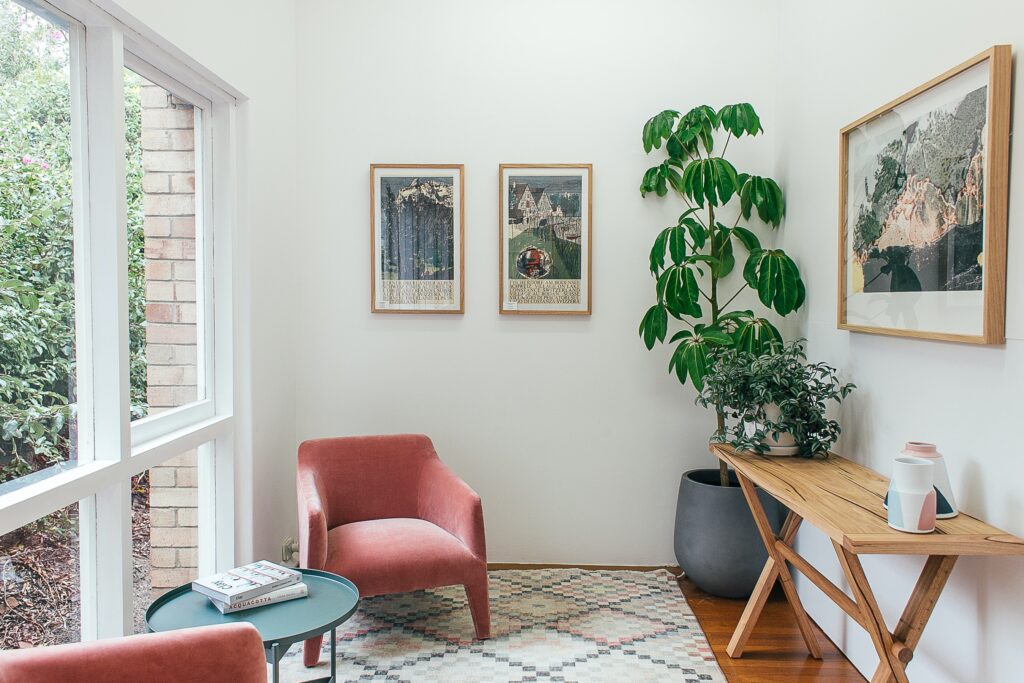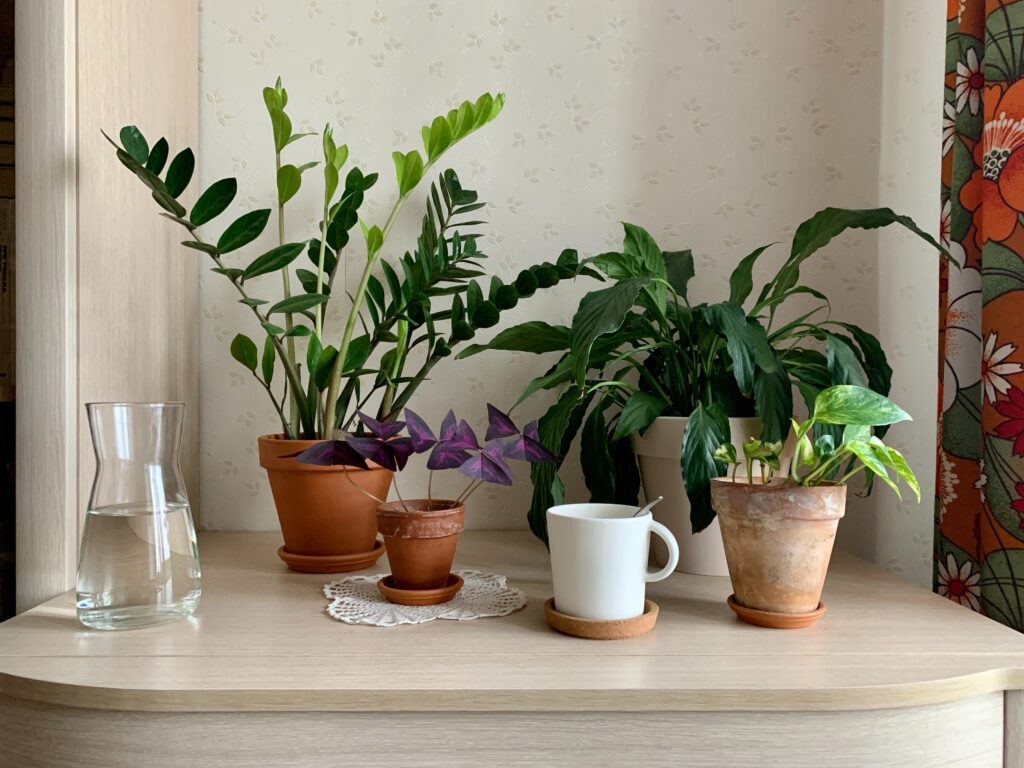Before you roll your eyes at another wellness trend, hang on for a minute. This isn’t some New Age mysticism but a scientifically backed, verified connection between indoor plants and better mental health. So why not perk up your indoors with some greenery and lift your mood while you’re at it?
Indoor plants for mental health is more than just a buzz phrase—it’s a powerful truth that we can’t afford to ignore. Have you ever wandered into a room filled with vibrant, lush plants and felt your spirits lift? Well, that’s not a coincidence; it’s science!

The Magic of Biophilic Design
The Magic of Biophilic Design is not merely an aesthetic trend, but a transformative approach to enhancing well-being. Incorporating Indoor Plants for Mental Health is an integral part of this design philosophy.
What is Biophilic Design?
Biophilic Design is a strategy that brings elements of nature into your living space. It aims to merge the beauty of the natural world with modern architecture and interior design.
Biophilic Design Benefits on Mental Health
The advantages of biophilic design on your mental health are profound. Biophilia can enhance your mood, reduce feelings of stress, and even boost productivity. So the next time you’re sipping chamomile tea in your green-filled nook, remember that your improved state of mind isn’t happenstance—it’s biophilia at work!
The Science Behind Phytoncides
You will surely be surprised to know about the science behind the phytoncides. Let’s see what they are and how it affects stress reduction.
What Are Phytoncides?
When plants put out that luscious scent, what you’re smelling are phytoncides. These are volatile organic compounds that plants emit, partly as a defense mechanism against pathogens.
Phytoncides and Stress Reduction
Were you aware that indoor plants can be a powerful stress reducer? Studies have demonstrated that phytoncides, compounds emitted by plants, can actually lower cortisol levels in your body. As part of an overall strategy for Indoor Plants for Mental Health, incorporating flora rich in phytoncides can make walking into your home a genuinely uplifting experience, melting away the stress of a taxing day.

Cognitive Function and Indoor Plants
Boosting your cognitive function isn’t just about mental exercises and a balanced diet; it’s also about your environment. Studies indicate that adding indoor plants to your living space can significantly improve cognitive abilities such as focus, memory, and attention span.
In essence, Indoor Plants for Mental Health offer a dual benefit: they not only uplift your mood but also sharpen your mind, making them a must-have in any wellness-focused home.”
Real-life Examples
Take Sara, a software developer who couldn’t focus on her complex tasks. She added a potted ficus to her workspace and, believe it or not, she began to notice a significant change in her ability to concentrate.
Top 10 Indoor Plants for Mental Health
Ready to transform your living space into a green oasis? Here are the top 10 plants you can consider:
1. Lavender
Known for its calming effects, lavender is ideal for anyone struggling with anxiety or sleep disorders.
2. Snake Plant
Besides being extremely low-maintenance, snake plants are excellent for improving indoor air quality.
3. Spider Plant
Easy to care for and resilient, the spider plant also has air-purifying capabilities.
4. Peace Lily
A beautiful addition to any room, peace lilies can also filter harmful toxins from the air.

5. Aloe Vera
This plant is a triple threat: it purifies air, has healing properties, and is super easy to care for.
6. Chamomile
Yes, you can grow your own calming chamomile tea right in your living room!
7. Boston Fern
This lush fern is not only aesthetically pleasing but also helps to humidify indoor air.
8. Rubber Plant
Known for its ability to remove toxins from the air, the rubber plant is another low-maintenance choice.
9. Pothos
With its trailing vines, this plant is perfect for shelves or hanging baskets and is also good for air purification.
10. Rosemary
Who knew that this culinary herb could also improve cognitive function? Plus, it smells divine!
Conclusion
So there you have it—a comprehensive guide to Indoor Plants for Mental Health. Supported by a plethora of peer-reviewed studies, the incorporation of indoor plants isn’t merely a trending lifestyle but a scientifically corroborated pathway to enhanced mental health. If you’ve been on the fence about embracing this lifestyle change, we hope you’re now convinced. It’s not just a fad; it’s a scientific path to a healthier, happier you.




